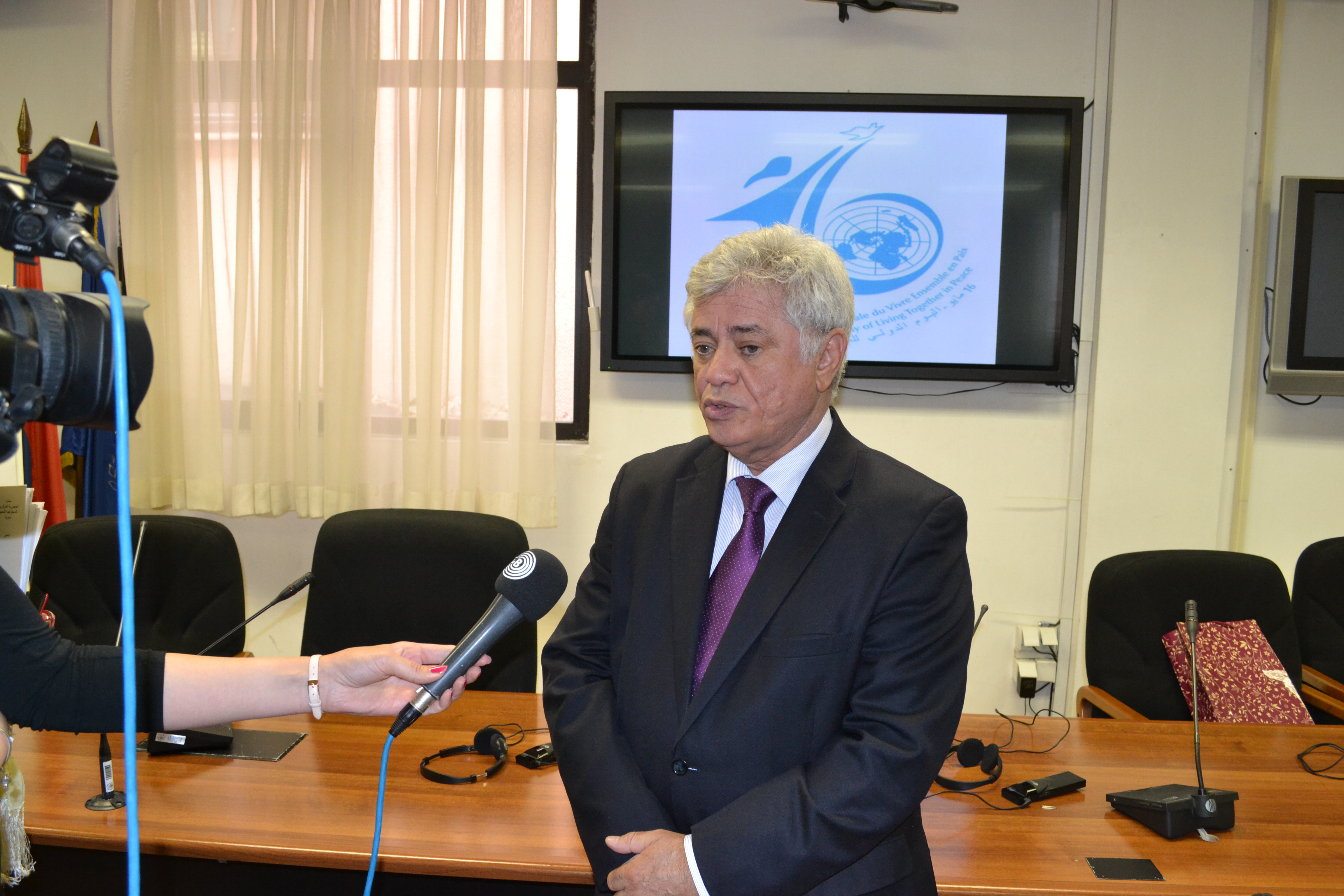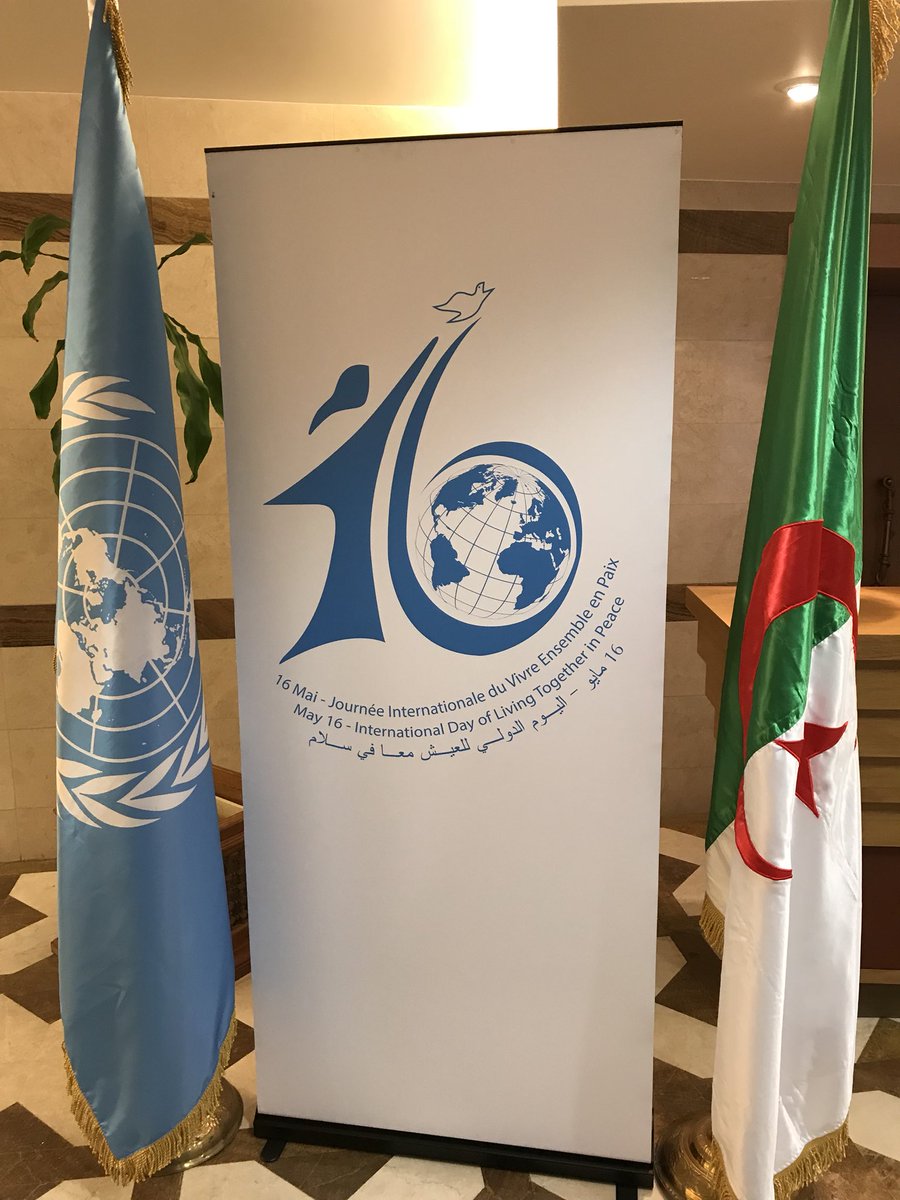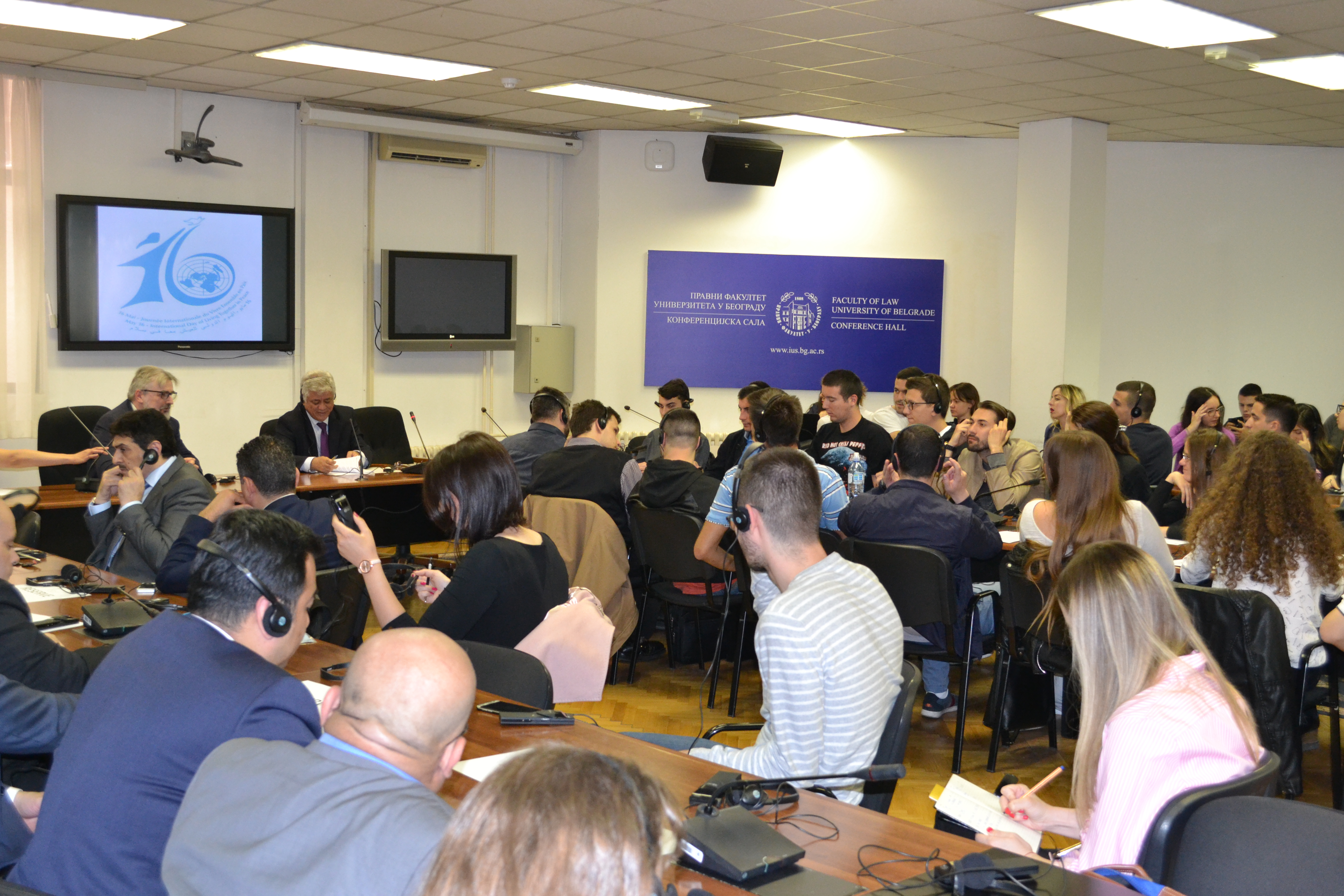On the occasion of the International Day of Living Together in Peace, declared by UN General Assembly resolution on 8 December 2017 at the initiative of Algeria, His Excellency Mr. Abdelhamid Chebchoub, Ambassador of Algeria in Belgrade gave a lecture on the Algerian experience in national reconciliation and the promotion of peace and tolerance, at the Faculty of Law of the Belgrade University, in the presence of the diplomatic corps and a large audience of students. Introducing the speaker, Mr. Vladan Petrov, Dean of the Faculty of Law recalled that “the culture of peace is not only at the basis of this resolution, but also of the modern civilization legality which draws its origins from the natural law, equality, freedom, justice and tolerance “.

He added that the celebration of this Day is an opportunity for the promotion of the Center for inter-religious and inter-culture dialogue, recently set up and led by Professor Branko Rakic.
The Ambassador of Algeria recalled the principles and objectives of this International Day, initiated by the International Association Sufi Alawia (AISA), an NGO affiliated to the Association of Cheikh el Alawi for Sufi culture and education, based in Mostaganem (Algeria) and chaired by Cheikh Khaled Bentounes and subsequently, transmitted by the Algerian Government to the UN.
He stated that this initiative draws its origins from the geographical position of his country, at the crossroads of several civilizations, its history characterized by coexistence of several cultures and marked by men such as St. Augustine or Emir Abdelkader who worked in favor of peace and harmony between men, civilizations and religions.
A deep conviction that moved Algeria to pursue this project comes from its experience gained in the recent past, in promoting national reconciliation in Algeria, its action towards deradicalization and the fight against extremism and its efforts in favor of peace in the region and worldwide.
The Ambassador of Algeria outlined the different stages the National reconciliation policy evolved through and the measures taken to implement the National Reconciliation Charter, adopted by referendum in 2005.
This conference generated a great deal of interest from the students whose questions allowed the speaker to shed further light on the issue.
A minute of silence was observed by the audience in memory of Palestinian victims who died in those last days.

